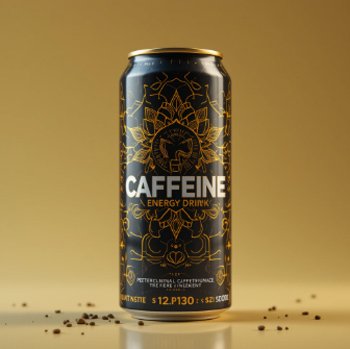Is all caffeine natural?
No!
Caffeine can be either natural or synthetic, and it's important to understand the difference.

Natural caffeine is extracted from plant sources like coffee beans, tea leaves, cacao beans, guarana berries, and yerba mate. These plants produce caffeine as a natural defense mechanism against insects and to help stimulate seed dispersal. Natural caffeine is released more slowly in the body because it often comes packaged with other plant compounds, leading to a gentler and more sustained effect.
In contrast, synthetic caffeine is made in laboratories, typically from petroleum-based starting materials through chemical processes. Synthetic caffeine is cheaper and faster to produce, which is why it is commonly added to sodas, energy drinks, and certain processed foods.
So, next time, when you see "caffeine" listed on an ingredient label without specifying the source, it usually indicates synthetic caffeine.
What are the potential effects of synthetic caffeine on health?
Synthetic caffeine is absorbed more rapidly by the body, which can lead to a sudden spike in energy followed by a sharp crash, leaving you feeling fatigued.
Because it is often added to high-sugar, highly processed drinks, it can also contribute to unhealthy dietary habits.
It may cause stronger side effects such as jitteriness, increased heart rate, anxiety, and digestive discomfort compared to natural caffeine.
Overconsumption of synthetic caffeine increases the risk of sleep disturbances and dependence.
Key message
Choosing natural caffeine sources may offer a steadier energy boost with fewer harsh side effects.
Read further on:
≻≻ Watch this page for more such informative articles on Health, Nutrition, and Wellness.
≻≻-Back to Home page.